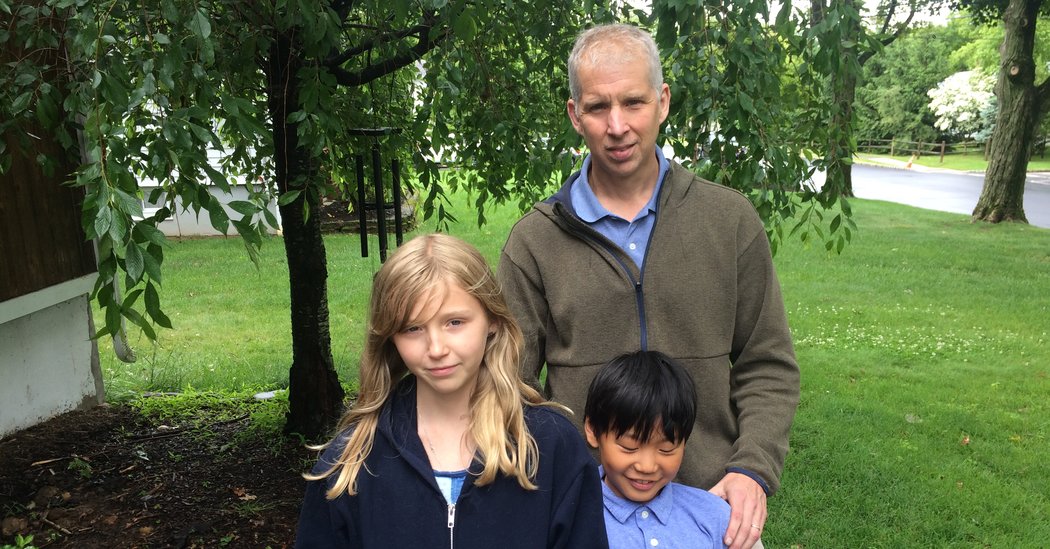
This past New Year’s Eve, I expressed thanks for getting through another year. I was 50, with a wife and two kids. I ran most days, and my freelance career was going well. Two days later, I was nearly dead.
The cause was a cardiac arrest. Blood flow to my heart wasn’t the issue. Instead, it was an “electrical problem,” the doctors told me. Cardiologists would later confirm that there was no blockage of my arteries. A random electric malfunction caused an arrhythmia that stopped my heart.
That arrhythmia occurred on the morning of Jan. 2, 2019, when I went for a run. I had been running regularly for years, and heart problems had never entered my mind. I believed I was resistant to heart attack, just like my father, who had never had heart problems.
From what I pieced together later, I complained of heartburn after the run and then made oatmeal for breakfast. Then I keeled over in front of my two kids after my wife left to take a guest to school. I learned later that after I collapsed, my 11-year-old daughter had contacted a neighbor and called an ambulance, saving my life.
I have only a vague memory of joking around with the emergency medical technicians, although I may have imagined that. They rushed me to our community hospital, where the doctors put me in therapeutic hypothermia, which lowered my body temperature to around 90 degrees for a day or two, which can help preserve brain function. During this time, my wife told me she saw me shivering late into the night, unable to sleep and apparently suffering greatly.
I spent the month in the hospital, and although many people came hundreds of miles to see me, I don’t remember interacting with them. I don’t remember much about January at all.
The big change came at the end of the month, at a birthday party for my wife. When I came home from the hospital at that time, I didn’t recognize the new house we had moved into six months before this happened. I soon discovered that my once stalwart memory had degraded. I used to have a calendar-like recall of every year. If you had asked me what I’d done in February 2016, for example, I could give you a pretty detailed answer. I no longer had that kind of command.
I started thinking more clearly at the party. I remember being happy about being able to sleep at my new house. It took me a while to recognize my wife. For a while I had on-and-off thoughts that a strange woman had kidnapped me. I feel bad for her. It must be hard to see your spouse almost die and then return in that mental state.
As my memory began returning, I learned I had just turned 50 and was a freelance writer. I remembered some things, like working at my previous job, though I didn’t remember leaving it or really anything from 2018, 2017 or 2016. I don’t recall putting my dog down in 2017. When asked who the president was, I said “Obama.”
During the slow recovery process, I learned, but didn’t remember, where I was in January. I was fascinated by what had happened in 2018. I looked at pictures of me and my family that year and didn’t remember any of it, even though we had bought a new house and moved that year.
The changes were profound and scary. My social skills were lacking. I found it hard to initiate conversations. I forgot what I used to talk about. I used to be keenly interested in politics, but now I didn’t really care. I was mostly interested in what happened to me and how I could fix my brain.
Listening to music on my phone was my favorite activity. I listened endlessly to Parquet Courts and the Black Keys, among others.
Every week I got better and smarter. I came to feel like the hero of “Flowers for Algernon,” who took a drug and soon became smarter than everyone. While it was very apparent that a lot of people knew things that I didn’t, I felt that few people had been through what I had been through.
The world seemed a place of hot and cold. Cold because I almost died, and so many people seem indifferent to the fact that death is always a few minutes away. But I also felt the warmth of my extended family and all the friends who showed up to see me, including many who thought they were seeing me for the last time.
I have since learned that my odds of living after the cardiac arrest were around 10 percent. I never seem to beat the odds in my regular life, so I was happy to do it this time, in such a dramatic fashion.
Today, after six months of rehab, my short-term memory is shaky, but they tell me it will improve. I have since taken up running again at the advice of my cardiologist. Running at first was terrifying, but I pushed through it and now love it again. At the end of a run, I always feel elation at having survived without an attack. For that moment, I feel like I used to.
Todd Wasserman is a freelance writer who lives in Cedar Grove, N.J.

